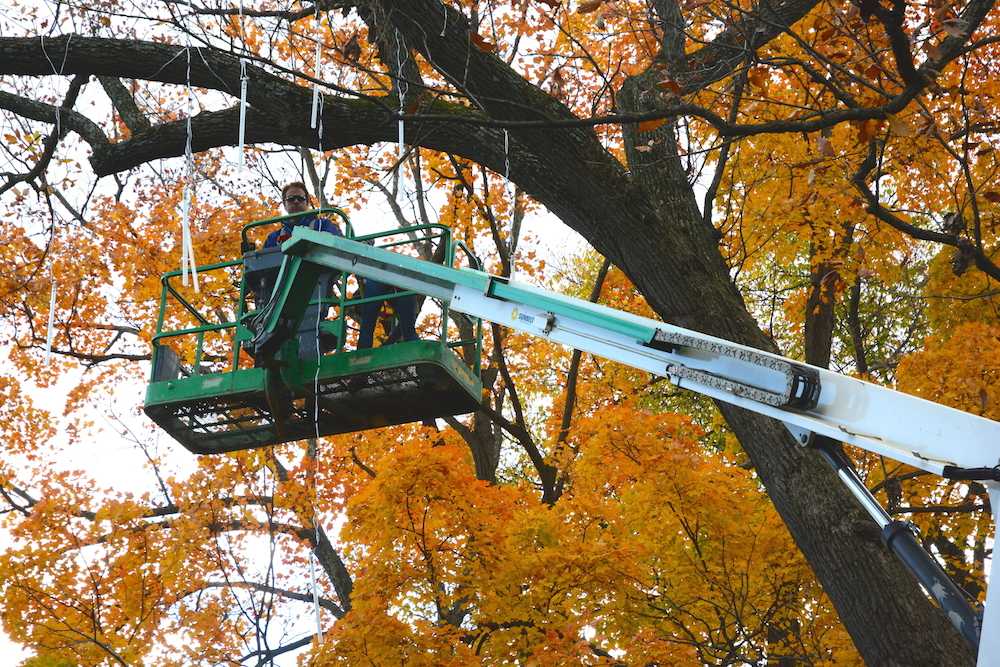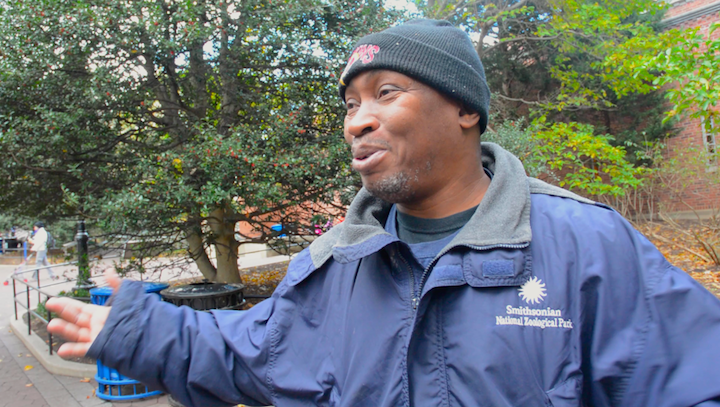Capitalism in the nation’s capital: Community reacts to wage protest
November 7, 2014
Washington, D.C.–Following last Monday’s government worker protest demanding higher wages, Smithsonian National Zoo workers shared their personal investments in the cause and expressed their optimism about the zoo’s future actions.
According to local D.C. publication Talk Radio News Service, the protest was staged by more than 60 government employees comprising the Smithsonian’s National Zoo and Smithsonian’s National Air and Space Museum. The protesters interrupted the annual public forum of the Smithsonian Board of Regents and demanded “good jobs,” citing fairness and human rights as an argument for higher wages.
Voices in the public rang out in support of the workers’ cause, even supporting the prospect of a higher tax to raise the wages of government employees.
“If they’re getting lower than they should get paid and their argument is a good one, I certainly think they should be heard and at least their opinion valued,” Kathy Salzano said.
Other members of the community discussed the necessary considerations for the Smithsonian to consider before increasing zoo workers’ wages.
“I think you need to take it in its total context,” Steve Cohen said. “What are the wages, what are the benefits, how much time do they get off, how does that compare to other people doing the same kind of labor with the same amount of risk.”
Zoo maintenance workers shared their thoughts on the increased wages. Traffic Aid Roderick Jackson felt that accepting the wage offered by the Smithsonian was an implicit agreement in accepting the job.
Groundskeeper Nossileki Abalou agreed with this sentiment. He expressed confidence in the zoo’s willingness to listen to concerns and treat workers fairly. “You have food and sometimes you have the events,” he said of the zoo’s employee benefits. “You have many things.”
The dichotomy of concern expressed by the public and contentment exhibited by the workers reflects a larger trend throughout the nation.

Minimum wages across the United States
Low wages, high spirits
Terrance Menieflu laughs about his age. Although he isn’t completely satisfied with his wages, Terrence maintains a positive outlook.
Terrance Menieflu, a custodial worker in his late fifties, has been working at the National Zoo for over 30 years, so for him, the recent protests are barely a blip on the radar.
“Well I guess, you know, people got families and they need more money so they gotta survive for their family,” Menieflu said. “There’s not nothing wrong with that.” He laughs. “I don’t have no problems with protesting. I’m too old to protest.”
Meinieflu, a tall, heavyset man in a nondescript navy jacket and dark green beanie, enjoys having been employed at the zoo for the past few decades. “Seeing people, doing work, I have a good study on the zoo and it’s great to be here,” he said. “I love my work.”
Still, he acknowledges that, as the sole breadwinner in his family, his pay is not ideal. “It could be better,” he said. “That’s why I go out and vote. I go out and vote for people that really want to give us our pay.”
Despite his personal dissatisfactions, Menieflu keeps his focus on being grateful for what he has. “Making more money, that’s good, but I’m blessed–we’re all blessed,” he said. “We ain’t on the other side. On the other side, some people don’t have no shoes, no clothes, no nothing.”
Of all the things in his life, Menieflu is the most thankful for his job. “I’m thankful for being here for over 30 something years. It’s a good thing to be in here,” he said. “I think this zoo here is good for everybody.”






